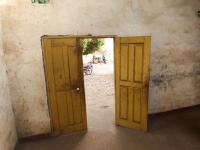 Streams of water trickle from the cotton sacks packed onto the truck, on a high wall. The load no longer weighs only eight tons, it weighs much more, but the accounts are settled, so it doesn’t matter. In my sweater, in my socks, the cotton fibres intertwine with threads of oil. If the truth is light and lies are as heavy as lead, the truck, wobbling at five miles an hour down the steep road, is carrying a great load of lies. But perhaps it is the opposite, that lies are light and the truth is heavy. In the eight hours I spent in the village, the price of a barrel of oil fell by a dollar.
Streams of water trickle from the cotton sacks packed onto the truck, on a high wall. The load no longer weighs only eight tons, it weighs much more, but the accounts are settled, so it doesn’t matter. In my sweater, in my socks, the cotton fibres intertwine with threads of oil. If the truth is light and lies are as heavy as lead, the truck, wobbling at five miles an hour down the steep road, is carrying a great load of lies. But perhaps it is the opposite, that lies are light and the truth is heavy. In the eight hours I spent in the village, the price of a barrel of oil fell by a dollar.
Mukanda
24.11.2018 | by Paulo Faria
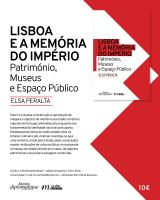 Its purpose is to analyse the several examples by which “images” related to the imperial history of Portugal are built and copied, thus being understood as a fundamental and articulating axis of the Portuguese national identity. The focus is therefore on a “image-memory” or a memory-representation, authorized by the State, by its corporation and by institutions of public culture and not so much on a memory-routine, passed on in the realm of daily social interactions, or a memory-remembrance, passed on verbally.
Its purpose is to analyse the several examples by which “images” related to the imperial history of Portugal are built and copied, thus being understood as a fundamental and articulating axis of the Portuguese national identity. The focus is therefore on a “image-memory” or a memory-representation, authorized by the State, by its corporation and by institutions of public culture and not so much on a memory-routine, passed on in the realm of daily social interactions, or a memory-remembrance, passed on verbally.
City
20.11.2018 | by Elsa Peralta
 On the contrary, myth derives from oral traditions and has its roots in the fantastic. At the same time, although myth does not need reality to acquire meaning, it does maintain some contact with experience and the world, as a kind of reality-in-disguise.
On the contrary, myth derives from oral traditions and has its roots in the fantastic. At the same time, although myth does not need reality to acquire meaning, it does maintain some contact with experience and the world, as a kind of reality-in-disguise.
To read
12.11.2018 | by Roberto Vecchi
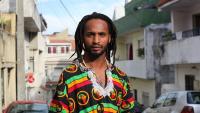 The new case, currently being heard in court, rejects the version of events previously offered by the police officers, and charges them with physical assault, aggravated kidnapping, inhumane treatment and inciting racially-motivated discrimination, hatred and violence - as well as slander, falsifying witness testimonies and falsifying documentation.
The new case, currently being heard in court, rejects the version of events previously offered by the police officers, and charges them with physical assault, aggravated kidnapping, inhumane treatment and inciting racially-motivated discrimination, hatred and violence - as well as slander, falsifying witness testimonies and falsifying documentation.
Body
05.11.2018 | by Ana Naomi de Sousa
 When history and duties to memory are ignored, truth can easily be thought of as a personal choice. Once accommodated in powerful discourse, these “truths” assume impunity: often disregarded and rarely condemned, even though they represent hate speech. Hatred has been normalized and has propelled a radicalism in which “good” struggles against “evil.” In this dichotomy, evil is once again the ‘other’. A discourse that does not humanize the ‘other’ authorizes barbarism – as we have seen in the post-election reactions
When history and duties to memory are ignored, truth can easily be thought of as a personal choice. Once accommodated in powerful discourse, these “truths” assume impunity: often disregarded and rarely condemned, even though they represent hate speech. Hatred has been normalized and has propelled a radicalism in which “good” struggles against “evil.” In this dichotomy, evil is once again the ‘other’. A discourse that does not humanize the ‘other’ authorizes barbarism – as we have seen in the post-election reactions
To read
05.11.2018 | by Fernanda Vilar
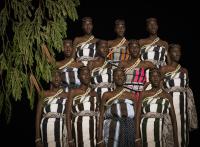 The societies in which we live at different latitudes are legacies of colonialism and constituted by imperial ruins. Depending on our skin colour, social class, academic background and where we live, we can inherit privilege – by benefitting directly or indirectly from the wealth European exploration accumulated – or we can inherit, even accumulate, the oppression of institutional racism and be exposed to inequality and racist colonial violence.
The societies in which we live at different latitudes are legacies of colonialism and constituted by imperial ruins. Depending on our skin colour, social class, academic background and where we live, we can inherit privilege – by benefitting directly or indirectly from the wealth European exploration accumulated – or we can inherit, even accumulate, the oppression of institutional racism and be exposed to inequality and racist colonial violence.
To read
04.11.2018 | by Bruno Sena Martins
 Ana Maria Garcia Nolasco da Silva
Member of the Research Unit in Design and Communication (UNIDCOM) of the Creative University of Lisbon (IADE-U) and of the Centre for Comparative Studies (CEC) of the University of Lisbon.
analascosapopt@gmail.com
In the same way each re-invents his own childhood by creating a narrative – one out of many possible others – with which he identifies in the present moment, so can it be said that national identities are continuously created retroactively though discourse, of which their citizens are active participants.
Ana Maria Garcia Nolasco da Silva
Member of the Research Unit in Design and Communication (UNIDCOM) of the Creative University of Lisbon (IADE-U) and of the Centre for Comparative Studies (CEC) of the University of Lisbon.
analascosapopt@gmail.com
In the same way each re-invents his own childhood by creating a narrative – one out of many possible others – with which he identifies in the present moment, so can it be said that national identities are continuously created retroactively though discourse, of which their citizens are active participants.
To read
18.10.2018 | by Ana Nolasco
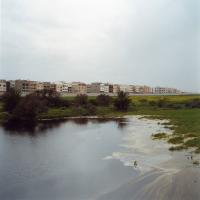 This exhibition addresses the question of cities and their connectivity in the Mediterranean over two radically different time periods. The first section follows a well known historical and geographical sequence through time and space, the Mediterranean of the 16th and 17th centuries, by exploring the connections between six cities (three from the Hapsburg Empire, and three from the Ottoman Empire) which were allied, in opposition, or in a power dynamic of domination. Here the itinerary of the exhibition reflects the geographical space of the Mediterranean : visitors enter in the east by Istanbul, circulate towards Venice and Algiers, before approaching the western part of the Mediterranean, from Genoa to Seville, concluding in Lisbon, the opening to the Atlantic. In the second section, the exhibition presents the cities of the contemporary Mediterranean : two metropolises (Marseille and Casablanca) and two megacities (Istanbul and Cairo).
This exhibition addresses the question of cities and their connectivity in the Mediterranean over two radically different time periods. The first section follows a well known historical and geographical sequence through time and space, the Mediterranean of the 16th and 17th centuries, by exploring the connections between six cities (three from the Hapsburg Empire, and three from the Ottoman Empire) which were allied, in opposition, or in a power dynamic of domination. Here the itinerary of the exhibition reflects the geographical space of the Mediterranean : visitors enter in the east by Istanbul, circulate towards Venice and Algiers, before approaching the western part of the Mediterranean, from Genoa to Seville, concluding in Lisbon, the opening to the Atlantic. In the second section, the exhibition presents the cities of the contemporary Mediterranean : two metropolises (Marseille and Casablanca) and two megacities (Istanbul and Cairo).
I'll visit
15.10.2018 | by vários
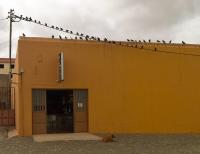 They are stories from which the narrator takes on the ambiguities of the discourses of negritude and whiteness, racism and antiracism, the plasticity of discrimination, the trap of stereotype, and the awareness of prejudice. These are stories that point us to a common past made up of very different memories.
They are stories from which the narrator takes on the ambiguities of the discourses of negritude and whiteness, racism and antiracism, the plasticity of discrimination, the trap of stereotype, and the awareness of prejudice. These are stories that point us to a common past made up of very different memories.
To read
02.10.2018 | by Margarida Calafate Ribeiro
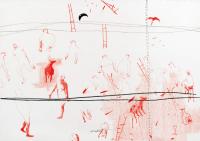 It is a fact: societies forget. Forgetting is a necessary process for creating collective identities, political solidarities and projects of social governance. It plays a role, too, in survival and rebeginning after civil wars or other crises in which societies break down.
It is a fact: societies forget. Forgetting is a necessary process for creating collective identities, political solidarities and projects of social governance. It plays a role, too, in survival and rebeginning after civil wars or other crises in which societies break down.
To read
02.10.2018 | by Hélia Santos
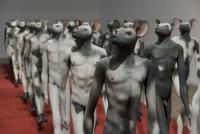 But we can't reverse History, even with the several attempts to naturalize it, to deny it and to manipulate it. Hence the importance of paying attention to the reluctant times we are now living in, which repeatedly insist on following the same old paradigms and refuse to make structural changes.
But we can't reverse History, even with the several attempts to naturalize it, to deny it and to manipulate it. Hence the importance of paying attention to the reluctant times we are now living in, which repeatedly insist on following the same old paradigms and refuse to make structural changes.
To read
22.09.2018 | by Joacine Katar Moreira
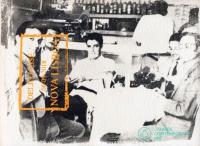 Taking these portraits as a starting point, what segregation does is to create contradictory sentiments between the delectable nostalgia of a privileged minority and the disavowal of a brutally exploited majority. All of history can be interpreted in multiple ways, like a work of art, and in Jasse’s work the myriad readings available to the observer are left open in an approach that is utterly unpretentious.
Taking these portraits as a starting point, what segregation does is to create contradictory sentiments between the delectable nostalgia of a privileged minority and the disavowal of a brutally exploited majority. All of history can be interpreted in multiple ways, like a work of art, and in Jasse’s work the myriad readings available to the observer are left open in an approach that is utterly unpretentious.
I'll visit
14.09.2018 | by Kiluanji Kia Henda
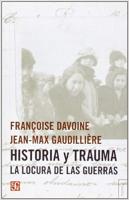 According to the authors themselves, reflecting on the complexity of the dilemma, “what cannot be said cannot be silenced either.” All of us at some point in our lives feel relief when it is possible to share something that affects us. We realize that whoever hears us, in addition to understanding us, validates and legitimizes what we are feeling with their gaze or words, thus confirming that we are not crazy.
According to the authors themselves, reflecting on the complexity of the dilemma, “what cannot be said cannot be silenced either.” All of us at some point in our lives feel relief when it is possible to share something that affects us. We realize that whoever hears us, in addition to understanding us, validates and legitimizes what we are feeling with their gaze or words, thus confirming that we are not crazy.
To read
14.09.2018 | by Ana Tironi
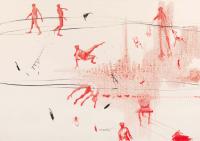 Creating this illusion of a post-utopian world that conceals war has a price: the absence in those three days and in that space of any type of explicit conflict, even contradiction: there is no place for the conflict of generations, gender, music, of tents of national and international producers, and so on.
Creating this illusion of a post-utopian world that conceals war has a price: the absence in those three days and in that space of any type of explicit conflict, even contradiction: there is no place for the conflict of generations, gender, music, of tents of national and international producers, and so on.
I'll visit
09.09.2018 | by António Pinto Ribeiro
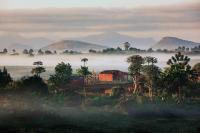 For many young people today, in Cape Verde, Guinea Bissau, Portugal, France, Brazil, the United States of America, Cabral represents the possibility of criticizing various forms of power, of resistance and of affirming their identities. The ways that Cabral has been taken up confirm that the originality of his praxis lies in its articulation of, and opposition to, different dimensions of domination and violence, from neo-colonialism to gender discrimination.
For many young people today, in Cape Verde, Guinea Bissau, Portugal, France, Brazil, the United States of America, Cabral represents the possibility of criticizing various forms of power, of resistance and of affirming their identities. The ways that Cabral has been taken up confirm that the originality of his praxis lies in its articulation of, and opposition to, different dimensions of domination and violence, from neo-colonialism to gender discrimination.
To read
04.08.2018 | by Sílvia Roque
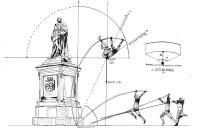 One of the most important discoveries to which the museum of the “Discoveries” could lead would, thus, be the perception that the uses of language are not innocent and the grammar of memory has always much more to do with the present than with the past – the perception, in short, that, in the whole controversy, what is at stake is not simply what we were, but, rather, what we are and, above all, what we want to be.
One of the most important discoveries to which the museum of the “Discoveries” could lead would, thus, be the perception that the uses of language are not innocent and the grammar of memory has always much more to do with the present than with the past – the perception, in short, that, in the whole controversy, what is at stake is not simply what we were, but, rather, what we are and, above all, what we want to be.
To read
14.07.2018 | by António Sousa Ribeiro
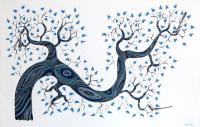 Now, forty-four years after the end of the War, for the former combatants who celebrate it in Belém, June 10 is, above all, a day when those who once fought together in Africa pay tribute to their comrades who died there. This year the meeting was celebrated for the 25th time. The same format unfolded: interfaith ceremony; speeches; a message from the President (in the Azores for other celebrations); parades, a cortège and the laying of flowers. Adriano Moreira did not speak, but he was a guest of honour. This tribute to the war-dead stages the consensus on which the meeting itself has always relied.
Now, forty-four years after the end of the War, for the former combatants who celebrate it in Belém, June 10 is, above all, a day when those who once fought together in Africa pay tribute to their comrades who died there. This year the meeting was celebrated for the 25th time. The same format unfolded: interfaith ceremony; speeches; a message from the President (in the Azores for other celebrations); parades, a cortège and the laying of flowers. Adriano Moreira did not speak, but he was a guest of honour. This tribute to the war-dead stages the consensus on which the meeting itself has always relied.
To read
13.07.2018 | by Fátima da Cruz Rodrigues
 With what significance do local and national public authorities in today’s Europe now want to include another narrative, not just the colonial narrative, in their official discourse about the past? Such a desire is clear in moments such as the Brussels municipality’s unanimous decision about Lumumba Square. That is, who has the responsibility to decide about how memories of colonialism should be brought forward in a Europe that is itself the child of colonialism? In other words, what does it mean that voices and visions of Europeans of African descent are taken into account in discourses about colonial legacy by a Europe that has struggled to recognize its own traumas and blind-spots?
With what significance do local and national public authorities in today’s Europe now want to include another narrative, not just the colonial narrative, in their official discourse about the past? Such a desire is clear in moments such as the Brussels municipality’s unanimous decision about Lumumba Square. That is, who has the responsibility to decide about how memories of colonialism should be brought forward in a Europe that is itself the child of colonialism? In other words, what does it mean that voices and visions of Europeans of African descent are taken into account in discourses about colonial legacy by a Europe that has struggled to recognize its own traumas and blind-spots?
City
03.07.2018 | by Felipe Cammaert
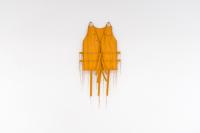 I said to one of them, who was very injured, “The troops can’t do anything for you, what do you want before you die?” He asked for water, I told the soldier to fetch water but gave him a signal not to go, that it wouldn’t be necessary. I picked up an FBP submachine gun, which wasn’t reliable, and fired a shot to kill him, but he stepped to the side.
I said to one of them, who was very injured, “The troops can’t do anything for you, what do you want before you die?” He asked for water, I told the soldier to fetch water but gave him a signal not to go, that it wouldn’t be necessary. I picked up an FBP submachine gun, which wasn’t reliable, and fired a shot to kill him, but he stepped to the side.
Mukanda
25.06.2018 | by Vasco Luís Curado
 Which colonial or imperial history are we talking about? What do we know about this past, whether distant or recent? What do we really know about such fundamental questions as occupational or income structures in former colonial societies, or patterns of consumption, degrees of literacy, cultural practices, ideological possibilities, levels of political education and participation, or citizenship and land policies, in the city, countryside or in between?
Which colonial or imperial history are we talking about? What do we know about this past, whether distant or recent? What do we really know about such fundamental questions as occupational or income structures in former colonial societies, or patterns of consumption, degrees of literacy, cultural practices, ideological possibilities, levels of political education and participation, or citizenship and land policies, in the city, countryside or in between?
To read
02.06.2018 | by Miguel Bandeira Jerónimo